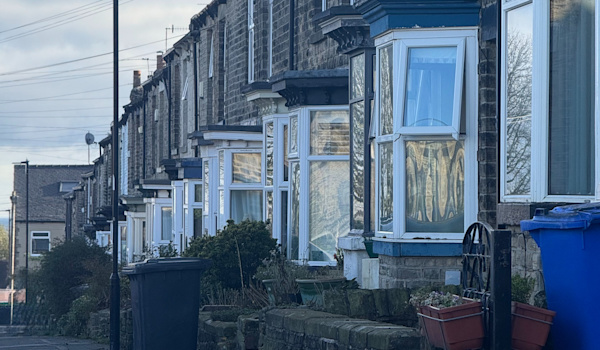Accommodation options available for people sleeping rough during winter, including the Severe Weather Emergency Protocol (SWEP).
Reviewed November 2025 | First published December 2021
Homeless applications
People who are homeless can apply for help from any local authority. Use Shelter's digital tool to find the contact details for a local authority.
A local authority has a duty to provide interim accommodation if it has reason to believe the person might be:
homeless
eligible for assistance
in priority need
A person can have a priority need if they are vulnerable, for example because of a physical or mental health condition. A person’s circumstances can be relevant. For example, a person sleeping rough might be more vulnerable during cold weather.
Find out more about the homeless application process on Shelter Legal.
Support for ineligible people with care needs
Many rough sleepers might not be eligible for homelessness assistance due to their immigration status.
If a rough sleeper has care and support needs that cannot be met without providing them with housing, social services have a duty to provide accommodation under the Care Act 2014.
Paying for interim accommodation
The local authority should provide interim accommodation while it makes further enquiries into other homelessness duties.
Homeless applicants who are not working or on a low income might be able to claim housing benefit to help with their accommodation costs. Applicants can claim universal credit for their other living costs.
Public authority duty to refer
Some public authorities, including accident and emergency services provided in a hospital, must notify the local authority if someone who has engaged with them may be homeless.
The public authority should send the person’s name and contact details to the local authority, and the local authority must contact the homeless person to discuss the options available.
Severe Weather Emergency Protocol
A local authority does not have a statutory duty to provide accommodation for rough sleepers, even during cold weather, unless the person meets the criteria for a homeless application. But there is a humanitarian obligation on local authorities to do all they can to prevent harm on the streets.
Extreme cold, wind and rain can be a serious risk to health and life if a person is exposed overnight or for long periods. Many local authorities and their local partners provide emergency provision during periods of cold or severe weather.
A severe weather emergency protocol (SWEP) is a local authority’s temporary response to the risks from severe weather. The protocol is accessible to anyone who needs help. This includes people who do not have recourse to public funds or a priority need for homeless help.
When a local authority should act
The trigger for a SWEP is usually a forecast of three or more consecutive nights with a minimum temperature of zero degrees celsius or lower. Local authorities are encouraged to be flexible in their response and consider:
the 'feels like' temperature
forecasts approaching zero degrees
the impact of rain, snow, wind chill and ice
Temperatures just above freezing can be just as harmful as sub-zero degrees.
Local authorities are encouraged to be flexible about when assistance is necessary and follow the Met Office's UK weather warnings.
What action a local authority could take
Under a SWEP most local authorities provide rough sleepers with a bed in a shelter, food, and washing facilities. This provides shelter from the weather and helps prevent health problems. For example, the opportunity to change out of wet clothes to avoid trench foot.
Some charities set up winter shelters during the coldest part of the year.
SWEP and winter provision toolkit
Homeless Link publishes a severe weather and winter provision toolkit for local authorities, homelessness services, and faith and community groups.
The toolkit supports local authorities to provide SWEP responses to prevent deaths of people rough sleeping during winter. It also contains guidance for organisations setting up winter provision, including suggested accommodation models.
Referring rough sleepers for help
Local authorities could share SWEP referral routes with organisations who might be in touch with people sleeping rough, including police and outreach teams. The guidance suggests simple and effective communication is essential.
The referral process should be clear to ensure that services understand what is offered and who it is intended for. This reduces the risk of inappropriate referrals.
Contact StreetLink if you’re worried about someone sleeping rough.
Night shelters and hostels
Rough sleepers can contact their local authority and ask about emergency housing options in their area. Use Shelter's digital tool to find the contact details for a local authority.
Night shelters
Night shelters provide basic sleeping accommodation for people who would otherwise be on the streets. During colder months, charities and churches set up temporary winter shelters.
Shelters usually restrict their opening hours, so people stay overnight and leave in the morning. Most shelters do not charge for a bed.
Hostels
Hostels provide basic temporary housing, usually a bedroom and shared facilities. There is usually a charge for staying in a hostel, and people on a low income can claim housing benefit to help pay the costs.
Hostels might have admission criteria, such as only being available for certain age groups or people with specific support needs. Some are for people who have experienced domestic abuse or have drug or alcohol problems. Most hostels provide a support worker to help residents find long term housing.
A rough sleeper needs a professional referral to access most hostels. Some hostels, known as direct access hostels, do not require a referral.
Find a night shelter or hostel
Use the Homeless Link website to search for night shelters and hostels across the country.
The London Housing Foundation hosts a map of winter shelters in London, with links to service information.



